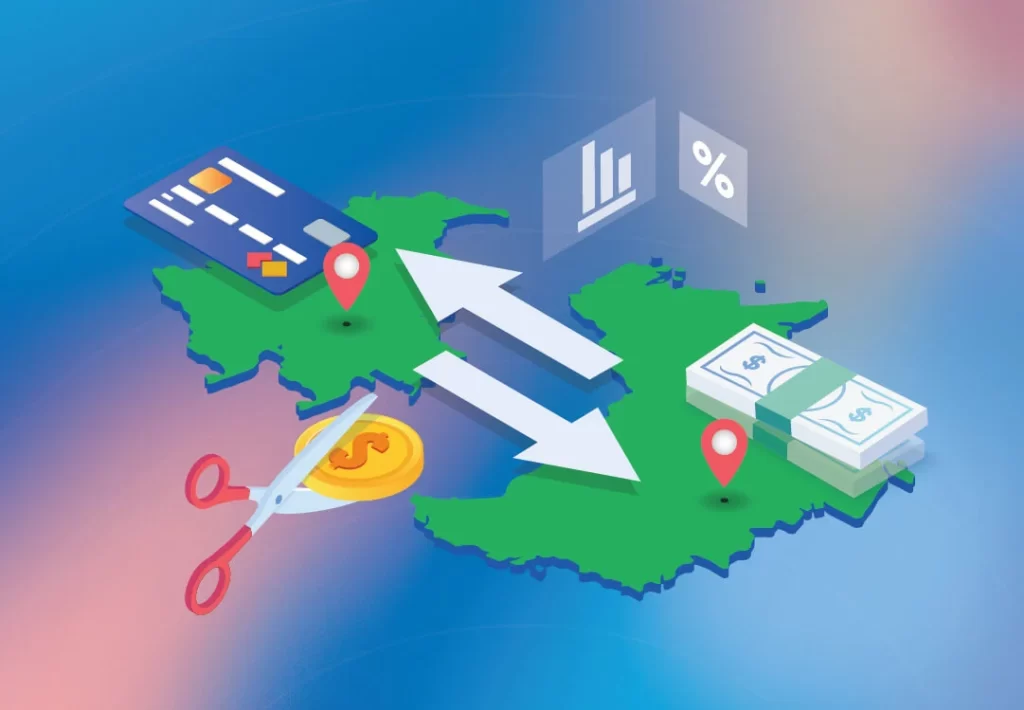
There has never been a more pressing need for effective cross-border payments and remittances in this era of globalization. High transaction costs, lengthy processing periods, and the possibility of currency swings have long hampered conventional systems. The disruptive factor that is changing the cross-border payment scene is cryptocurrency. We will examine how cryptocurrencies are changing how we send and receive money internationally in this blog post.
1. Speedy Transactions
Cross-border transactions can be completed in almost real-time thanks to cryptocurrencies like Bitcoin and Ethereum. Cryptocurrencies flow across borders quickly, cutting wait times and increasing overall efficiency. In contrast to traditional banking systems, which may require days to process international payments.
2. Lower Transaction Costs
Traditional international money transfers frequently include high fees that reduce the amount being sent. Contrarily, as cryptocurrencies often have lower transaction fees, sending money abroad is more affordable for both people and corporations.
3. Accessibility :Cross-Border Payments
No matter where they are in the world, anyone with a digital wallet and an internet connection may access cryptocurrencies. For those who live in areas with little access to traditional financial services, this accessibility is a game-changer.

4. Security :Cross-Border Payments
Secure transactions are guaranteed by the blockchain technology that underpins cryptocurrencies. Because blockchain is decentralized, it is very difficult for hackers to manipulate transactions or steal money.
5. Transparency :Cross-Border Payments
Transparency and accountability are provided through the public ledger that contains records of every cryptocurrency transaction. Users may instantly check the status of their transactions, which removes any ambiguity.
6. Currency Conversion
Converting currencies while working with conventional banks can be a difficult and expensive process. By enabling consumers to instantly transfer their assets into the desired currency, cryptocurrencies solve this issue.

7. Financial Inclusion :Cross-Border Payments
The unbanked and underbanked communities are becoming more powerful because to cryptocurrencies, which provide them access to international financial networks. It is possible that millions of people may escape poverty because to this unprecedented financial inclusion.
Despite these substantial benefits, it’s critical to recognize the difficulties and worries that surround cryptocurrencies in the context of international payments:
Read This : Cetoex Made Easy 8-Step Guide to Buying Crypto.
1. Volatility: The value of cryptocurrencies can be highly volatile, leading to potential risks for users who hold their funds in digital assets for extended periods.
2. Regulatory Uncertainty: Cryptocurrency regulations vary widely from one country to another, creating confusion and legal challenges for users and service providers.
3. Lack of Adoption: While cryptocurrencies are gaining traction, they are not yet universally accepted. Users may face limitations in finding businesses that accept digital currencies for goods and services.
4. Security Risks: While blockchain technology is generally secure, users must be vigilant about protecting their private keys and digital wallets to avoid theft or fraud.
In conclusion Cross-Border Payments, it is undeniable that cryptocurrencies are reshaping the world of international transfers and payments. Along with increased accessibility, affordability, and speed, they also provide improved security and transparency. Regulatory difficulties and volatility worries are two obstacles that must still be solved on the road to mainstream use and acceptance. It’s crucial for people and businesses to stay aware and make educated judgments as the crypto ecosystem continues to develop when navigating the world of cross-border payments.
Social Media Do Follow Us Twitter Insta, and Join Our Telegram Chanel And Also Visit Our Website, And Keep in Touch With Us.